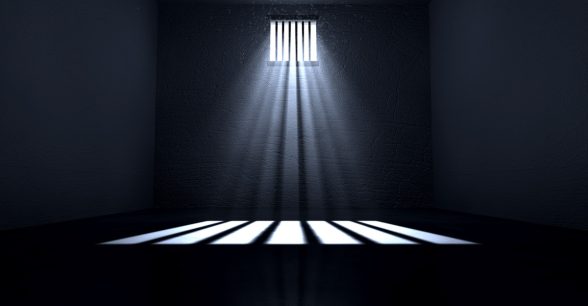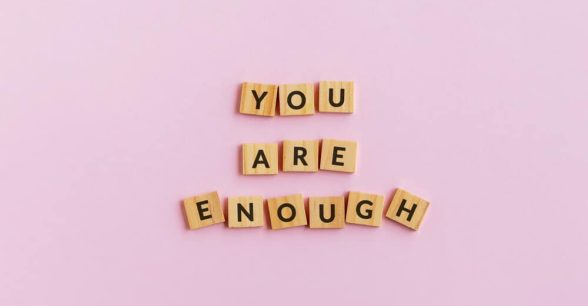“We Are Human”: The Harms of Placing Disabled People Under Conservatorship
Content note: institutionalization, mentions of suicidality, self-harm, sexual abuse, forced labor, physical assault
On June 23, 2021, Britney Spears petitioned the courts to release her from her father’s guardianship (also called conservatorship), alleging abuse and medical coercion perpetrated by her doctors and family. As #FreeBritney trended across various social media platforms, many Americans learned about the issue of conservatorship for the first time. While Spears’ case may seem outlandish to those unacquainted with the brutality of ableism in America, her situation is unfortunately not unique. From the age of 18-24, I too remained under the control of my parents under the guise of receiving necessary long term care. Being legally forbidden from making my own decisions about my body, medical care, and life caused prolonged trauma–the reverberations of which still impact me today.
While exact numbers are difficult to find due to a lack of official record keeping, the National Council on Disability estimates that 1.3 million Americans are currently living under guardianship. Ostensibly, these policies exist for people with struggles like mine. Starting at age 12, I grappled with psychosis, an eating disorder, suicidality, and self harm. After entering residential care at 17, I became increasingly unstable. The residential facility told my parents they should get extended custody and keep me in the program because I was unable to care for myself.
Life in the residential program was horrific. Sexual abuse, forced labor, physical assault, and neglect were commonplace. When we expressed distress, staff would send us into isolation and forbid us to speak or make eye contact with anyone. When we spoke about suicidal feelings or expressed disagreement with the program, we were sent to chop wood all day while forbidden from social contact with anyone, including our therapists. These punishments could last from days to weeks at a time. Residents’ everyday actions were tallied with point cards, and minor infractions, such as refusing to eat raw broccoli or insufficiently cleaning a surface, were punishable by total loss of privileges. Our communication with the outside world was greatly restricted and staff would place further constraints on our communication privileges if we spoke to the horrors we were experiencing.
Adults under conservatorship don’t have the right to decide where they live, which doctors they go to, what medications they take, and what type of care they receive. Unlike Spears, most individuals in extended custody do not get news coverage or media support. Instead, they get told this such care is for their own safety, while behind closed doors they experience horrific abuse. While under conservatorship, I was described repeatedly as a “hopeless case” who would “never live outside a group home.” But humans cannot be “hopeless cases.” We are people with preferences, desires, and relationships, who deserve the same right as everyone else to make our own choices and mistakes.
Placing an adult under conservatorship requires paperwork to prove that the conservatee is legally incompetent, a process which involves little to no input from the individual in question. I was informed of my conservatorship retroactively. No one asked me what alternative support would have helped me attain stability. By placing disabled individuals under conservatorships, we assume that they lack the self knowledge and ingenuity to find their own solutions for problems, seek out safe support systems, and find care for their health issues. Disabled people may want and need a wide variety of support services to navigate their daily lives. However, the solution is to increase ease of access to support, not to take away fundamental human rights. This is a bigger issue than Britney Spears.
It took me 6 years to escape my parents’ control. I got lucky enough to be assigned a case manager who convinced my parents to relinquish custody. Such revocations of adult guardianship are rare. Now free from being forced to capitulate to my family’s decision making, I am stable and independent. I run my own successful business and am in total recovery from my eating disorder and psychosis. It didn’t happen overnight. Along with the struggles that I experienced before my conservatorship, I also had to work hard to move past the abuse inflicted on me in the name of mental health treatment. Trauma therapy, relationship building, and community support services have helped me build a meaningful life. I am proud to say that these days, I am happy and well.
However, even if I had continued to struggle with my mental health, I, like all disabled people, should have the right to make decisions about my own life. Bodily autonomy should not be revocable. Disabled people deserve safety, support, and care on our own terms, not because we meet court criteria that allows our independence, but because we are human.
About Rooted In Rights
Rooted in Rights exists to amplify the perspectives of the disability community. Blog posts and storyteller videos that we publish and content we re-share on social media do not necessarily reflect the opinions or values of Rooted in Rights nor indicate an endorsement of a program or service by Rooted in Rights. We respect and aim to reflect the diversity of opinions and experiences of the disability community. Rooted in Rights seeks to highlight discussions, not direct them. Learn more about Rooted In Rights



